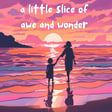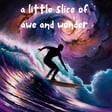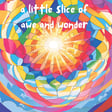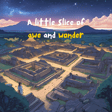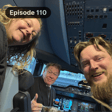
Slice #3: Finding Awe in Food
The host sits down with multi-talented teacher, programmer, photographer, and cooking enthusiast, Jeremy Young to explore how food can inspire awe and wonder in our everyday lives. From posh PB and J's to discovering global cuisines, they discuss how mindful eating can transform the ordinary into the extraordinary.
You can find Jeremy at jeremyjgyoung.com or on IG at @jeremyjgyoung
00:00 Host intro
04:00 Guest greetings
04:47 Exploring the Magic of Food
07:10 Personal Stories of Culinary Awe
09:40 Cultural and Personal Connections to Food
12:17 The Role of Attention in Food Appreciation
15:57 Food Rituals and Their Significance
32:03 The Power of Eating Together
Awe's regulatory effect on food
Mindful eating's effects on enjoyment
This is a big experiment for me, so I'd love your feedback. Reach out to me: garrett@oyamaslp.com
Support the pod: https://buymeacoffee.com/goyama

